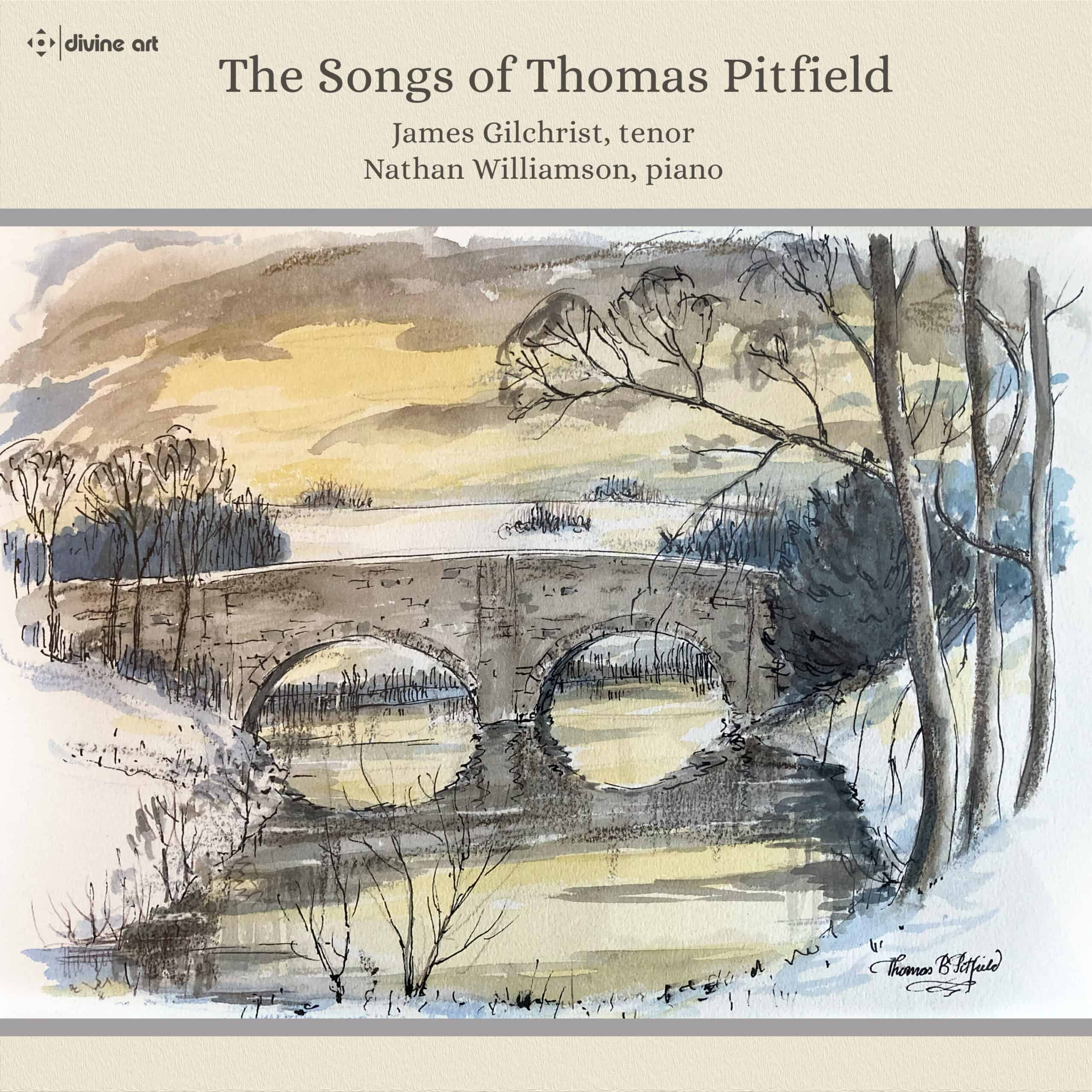Fanfare
Thomas Pitfield (1903–1999) lived a long and productive life as a composer, teacher, poet, and artist. He designed the house he lived in and the furniture in it as well. Most of these songs are setting of his own texts or poems of friends (he avoided copyright issues that way). Pitfield’s style was conservative, and his songs fall directly into the British tradition represented by Vaughan Williams, Britten, and Holst. They display sensitive word settings, and their moods range from sweet and gentle to witty and even macabre. The downside is the simplicity of Pitfield’s piano writing, which causes the listener’s attention to wander after a while. In smaller doses, however, this is attractive material, particularly in the present performances.
Tenor James Gilchrist spent his early career as a physician, turning to a full-time singing career in 1996 at the age of 30. His voice is rather generic, attractive but lacking in individuality and limited in its range of colors. He uses his vocal resources with intelligence, though, which counts for a lot in these songs. Winter Evening: Dunham Park is a highlight in this collection. The spare melodic line fits Pitfield’s bleak verse perfectly: “Beech boughs are etched on the grey waste of sky as on a wide-arched canopy of glass.” In his singing Gilchrist employs a varying range of soft dynamics to capture the mood. In “You Frail Sad Leaves,” the music and text turn darker when referring to the tears of estranged lovers, for which Gilchrist poignantly finds the right vocal coloration.
This program works because the music and the singer are so well suited to each other. The songs respond to the intimacy Gilchrist imparts. This is singing that invites you into its world instead of reaching out to seize your attention. At this stage in Gilchrist’s career, this is probably how things have to be—he was 57 when this recording was made, and the voice sounds at its best at mezzo-forte and softer. But the singer’s dramatic skills are still evident in “Skeleton Bride,” a weirdly macabre quasi-recitation that isn’t quite Sprechstimme or speaking. Clearly Gilchrist relishes the bizarre text. Some of these songs have a touching bittersweet quality, like “September Lovers” and its reminiscence about lost love. Others aresimple and tender, like “Christmas Lullaby,” and yet others exhibit Pitfield’s brand of dry British humor, such as “Four Short Songs.”
In short, this is an enjoyable disc of attractive songs performed with sensitivity. The recorded sound is a bit distant; I wish Gilchrist’s voice had more presence. The balance with Nathan Williamson’s piano, however, is fine, and his tasteful accompaniments are a nice fit with the singer. The booklet provides helpful notes and full texts. I can recommend this release confidently to anyone interested in off-the-beaten-path British songs.
@divineartrecordingsgroup
A First Inversion Company
Registered Office:
176-178 Pontefract Road, Cudworth, Barnsley S72 8BE
+44 1226 596703
Fort Worth, TX 76110
+1.682.233.4978












